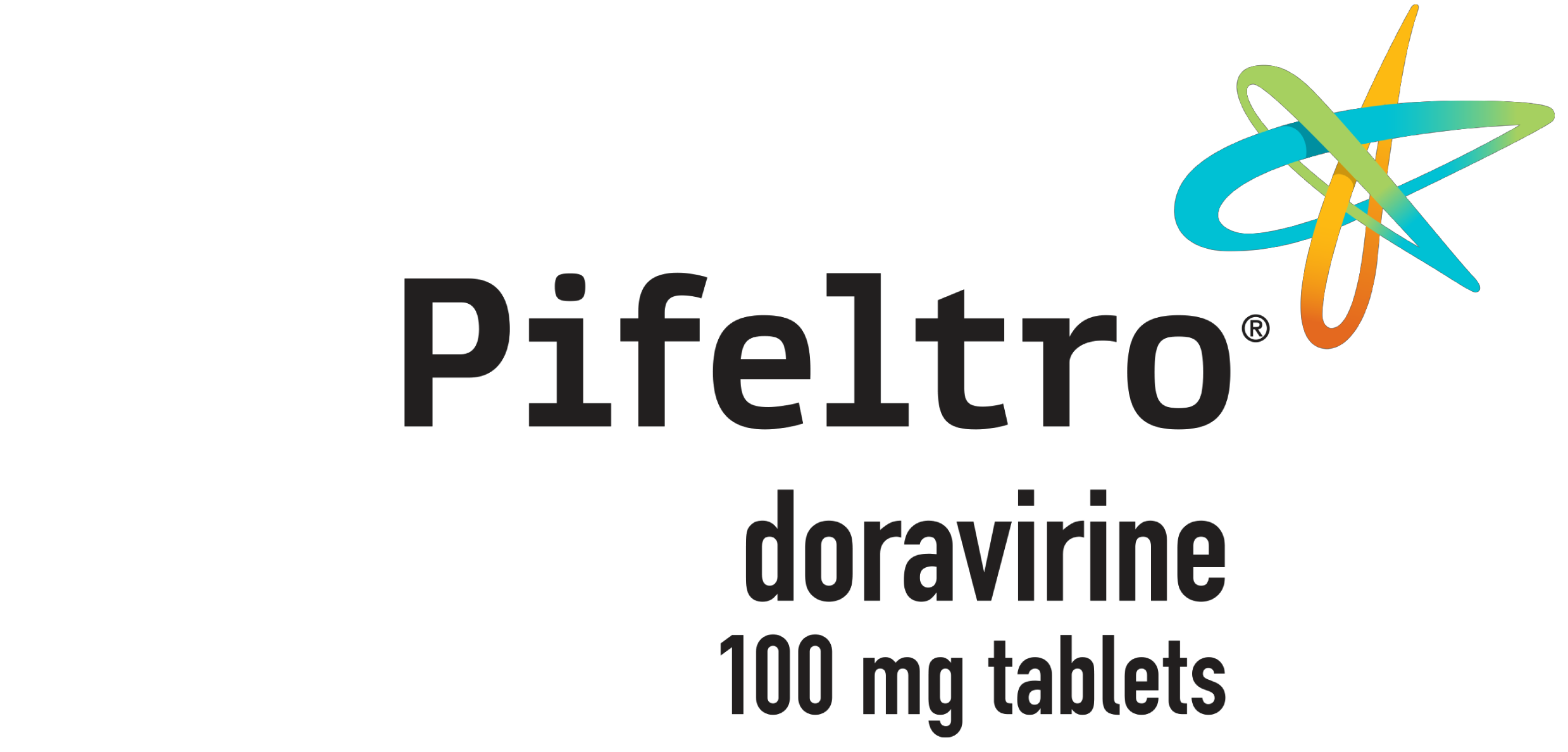Tolerability of DELSTRIGO® (doravirine/lamivudine/tenofovir disoproxil fumarate)
Learn about:
DRIVE-SHIFT: In a 48-week study of virologically suppressed adults with HIV-1, DELSTRIGO demonstrated a:
Low rate of discontinuation due to adverse events through week 481,3
- Discontinuation of baseline regimen from DSG during weeks 0–24 was 0.4% (n=223). Combined rate of discontinuation was determined by calculating the total number of participants who discontinued DELSTRIGO across the ISG weeks 0–24 (7), ISG weeks 24–48 (6), and DSG weeks 24–48 (2), and dividing by the total number of participants across these trial arms on this regimen (n=656).
- Overall, the safety profile in virologically suppressed adults was similar to that in participants with no antiretroviral treatment history.
DRIVE-SHIFT: 144-week extension phase (week 48 to week 144) evaluating virologically suppressed adults with HIV-1:
144-Week rates of discontinuation due to adverse reactions2,3
During the extension phase, all participants (n=600) were taking DELSTRIGO
Limitation: No formal statistics testing was planned for this updated analysis and, therefore, no statistical conclusions can be drawn.
DRIVE-AHEAD: In a 96-week clinical trial, DELSTRIGO demonstrated a:
Low rate of discontinuation due to adverse events at week 96
DRIVE-AHEAD: No adverse reactions Grade 2 or higher (moderate to severe) occurred in ≥2% of participants taking DELSTRIGO
Adverse reactions of all grades reported in ≥5% of participants in any treatment group
aIncludes rash, rash erythematous, rash generalized, rash macular, rash maculo-papular, rash papular, rash pruritic.
Study designs
DRIVE-SHIFT study design
A randomized, multicenter, active-controlled, non-inferiority, open-label, phase 3 trial of adult participants with virologically suppressed HIV-1 for ≥6 months on 2 NRTIs with a PI plus either ritonavir or cobicistat, elvitegravir plus cobicistat, or an NNRTI, with no history of virologic failure. Participants were either immediately switched to DELSTRIGO on day 1 of the 48-week trial (Immediate Switch Group [ISG; n=447]) or continued their baseline regimen and switched after 24 weeks (Delayed Switch Group [DSG; n=223]) to DELSTRIGO.1,2
Extension study: Participants who completed the 48-week visit were eligible to continue receiving open-label DELSTRIGO for an additional 96 weeks, up to week 144.1,2
Primary efficacy end point: Percentage of participants with HIV-1 RNA ≥50 copies/mL in the ISG at week 48 vs the DSG at week 24: 2% for DELSTRIGO vs 1% for the baseline regimen. Difference (95% CI): 0.7 (-1.3, 2.6).1
Additional efficacy end point: Percentage of participants with HIV-1 RNA <50 copies/mL in the ISG at week 48 vs the DSG at week 24: 91% for DELSTRIGO vs 95% for the baseline regimen.1
Safety end point: For participants whose baseline regimen included a PI plus ritonavir: Mean change from baseline to week 24 in fasting LDL-C and non-HDL-C.1
DRIVE-AHEAD study design
A randomized, multicenter, double-blind, active-controlled, non-inferiority, phase 3 trial comparing DELSTRIGO once daily (n=364) vs 600 mg EFV/200 mg FTC/300 mg TDF once daily (n=364) in treatment-naïve adult participants with HIV-1 RNA ≥1000 copies/mL.4,5
Primary efficacy end point: Percentage of participants with HIV-1 RNA <50 copies/mL at week 48 for DELSTRIGO vs EFV/FTC/TDF: 84% vs 81%. Difference (95% CI): 3.5 (-2.0, 9.0).4
Secondary efficacy end point: Percentage of participants with HIV-1 RNA <50 copies/mL at week 96 for DELSTRIGO vs EFV/FTC/TDF: 77% vs 74%. Difference (95% CI): 3.8 (-2.4, 10.0).5
Primary safety end point: Percentage of participants with three pre-specified neuropsychiatric events (dizziness, sleep disorders/disturbances, and altered sensorium) at week 48.4,a,b
- Dizziness: 9% for DELSTRIGO vs 37% for EFV/FTC/TDF. Difference (95% CI): -28.3 (-34.0, -22.5); P<0.001
- Sleep disorders and disturbancesc: 12% for DELSTRIGO vs 26% for EFV/FTC/TDF. Difference (95% CI): -13.5 (-19.1, -7.9); P<0.001
- Altered sensoriumd: 4% for DELSTRIGO vs 8% for EFV/FTC/TDF. Difference (95% CI): -3.8 (-7.6, -0.3); P=0.033
Safety end point: Mean change from baseline to week 48 in fasting LDL-C and non-HDL-C.4
an=364 for each treatment group.
bThe 95% CIs were calculated using Miettinen and Nurminen’s method.
cPredefined using MedDRA preferred terms, including: abnormal dreams, hyposomnia, initial insomnia, insomnia, nightmare, sleep disorder, and somnambulism.
dPredefined using MedDRA preferred terms, including: altered state of consciousness, lethargy, somnolence, and syncope.
Acronyms
EFV, efavirenz; FTC, emtricitabine; HDL-C, high-density lipoprotein-cholesterol; LDL-C, low-density lipoprotein-cholesterol; MedDRA, Medical Dictionary for Regulatory Activities; NNRTI, non-nucleoside reverse transcriptase inhibitor; NRTIs, nucleoside reverse transcriptase inhibitors; PI, protease inhibitor; RNA, ribonucleic acid; TDF, tenofovir disoproxil fumarate.
References
- Johnson M, Kumar P, Molina JM, et al; for the DRIVE-SHIFT Study Group. Switching to doravirine/lamivudine/tenofovir disoproxil fumarate (DOR/3TC/TDF) maintains HIV-1 virologic suppression through 48 weeks: results of the DRIVE-SHIFT trial. J Acquir Immune Defic Syndr. 2019;81(4):463-472. doi:10.1097/QAI.0000000000002056.
- Kumar P, Johnson M, Molina JM, et al; for the DRIVE-SHIFT Study Group. Switching to DOR/3TC/TDF maintains HIV-1 virologic suppression through week 144 in the DRIVE-SHIFT trial. J Acquir Immune Defic Syndr. 2021;87(2):801-805. doi: 10.1097/QAI.0000000000002642.
- Data available on request from the Merck National Service Center via email at daprequests@merck.com. Please specify information package US-DOV-01681.
- Orkin C, Squires KE, Molina JM, et al; for the DRIVE-AHEAD Study Group. Doravirine/lamivudine/tenofovir disoproxil fumarate is non-inferior to efavirenz/ emtricitabine/tenofovir disoproxil fumarate in treatment-naive adults with human immunodeficiency virus-1 infection: week 48 results of the DRIVE-AHEAD trial. Clin Infect Dis. 2019;68(4):535-544. doi: 10.1093/cid/ciy540.
- Orkin C, Squires KE, Molina JM, et al. Doravirine/lamivudine/tenofovir disoproxil fumarate (TDF) versus efavirenz/emtricitabine/TDF in treatment-naive adults with human immunodeficiency virus type 1 infection: week 96 results of the randomized, double-blind, phase 3 DRIVE-AHEAD noninferiority trial. Clin Infect Dis. 2021;73(1):33-42. doi: 10.1093/cid/ciaa822.


